
What Is Dry Hair?
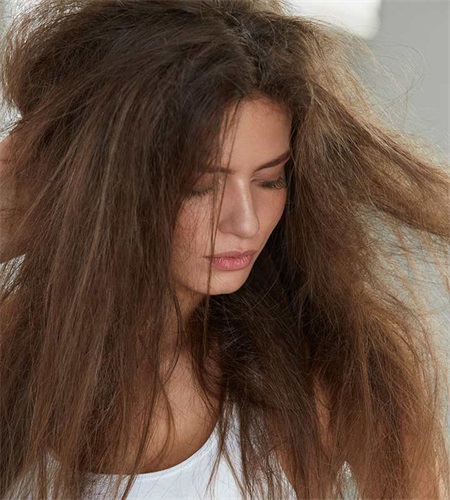
Dry hair will occur when your scalp doesn’t make enough oil to moisturize your hair, or your hair doesn't retain enough moisture. When you have dry hair, you might notice that your hair is dull, brittle, and frizzy.
Why Is My Hair So Dry?
Dry hair can be caused by a number of external and internal factors. External factors include things like the weather, how often you wash your hair, the hair products you often use, style tools you use, or chemical styling and dyeing. While internal factors include the foods you eat, any medications you may be on, hormonal imbalances, and even genetics. Then let's dive deeper into this.
First of all, we take a look at some of the environmental conditions that can cause dry hair including:
1. a dry, hot climate;
2. frequent exposure to the sun and wind;
3. frequent exposure to chlorinated or salty water;
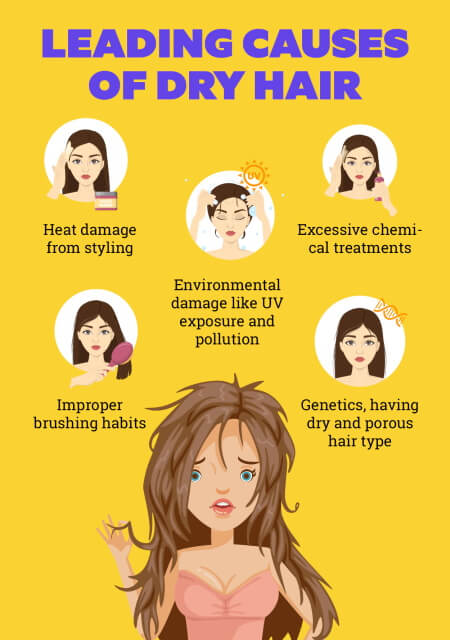
Hair care habits that often contribute to dry hair include:
1. wash your hair too often;
2. use harsh shampoos, conditioners, or styling products;
3. frequently dye or chemically treat your hair;
4. blow-dry your hair too often;
5. often use curling irons, straighteners, or curlers to style hair;
6. Overbrush;
In some cases, dry hair is the result of an underlying health problem. Examples include:
1. anorexia nervosa: an eating disorder that can lead to malnutrition, cause dry and brittle hair, along with more serious complications.
2. hypoparathyroidism or hypothyroidism;
3. Menkes syndrome;
How Do You Fix Dry Hair?
In many cases, you can fix your dry hair through simple home remedies. Here are a few home remedies you can try:
1. Wash Your Hair Less Often
There is no reason you need to wash your hair every day unless you overdid it on the styling products the day before, sweat a lot or both. After all, over-washing will strip your hair and scalp of their natural oils, thus leading to dryness and damage.
To make up for the dryness of your scalp, it is best for you to wash your hair two to three times a week for a healthy balance of clean and moisturized hair and scalp.
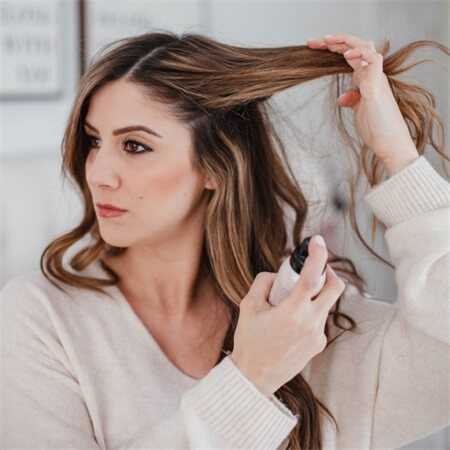
If you can’t go a day in between washing, it is a good option for you to use a shampoo specifically for dry hair or even try baby shampoo. Both are mildly cleansing without stripping hair completely of its natural oil.
But dry shampoos also have their limits. For example, overusing dry shampoo can cause buildup which will lead to further problems than just dry hair.
2. Use Right Hair Care Products
If you’re scratching your head on how to moisturize dry hair, it’s very essential to look at the products you’re using on hair wash days.
Conditioner is essential for you to fix dry hair, especially in the colder months. That is because a moisturizing conditioner can keep hair cuticles lying flat so they hold in natural oils. You don’t need to lather your whole head with conditioner and instead focus conditioner from the mid-shaft to your ends, where you need it most.
Of course, using a mild shampoo all over your head and hair also works well, but don’t overdo it. Besides, don't forget to read the labels of your products like shampoos and conditioners carefully. Look for products that suit the specific needs of your hair and look for shampoos that are paraben-free, do not contain alcohol, and are sulfate-free. Finally, be sure to rinse all products out thoroughly too.
3. Get A Trim
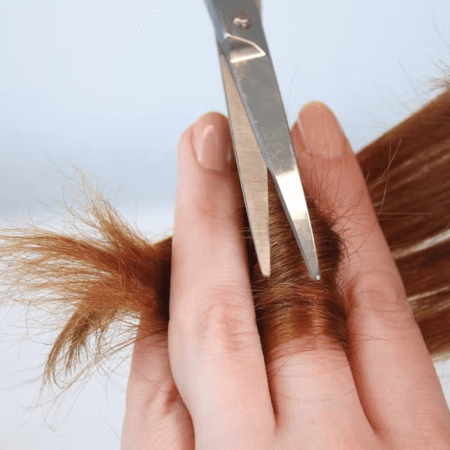
Even if your hair isn’t very long, split ends can make hair hard to style and contribute to it feeling dry or coarse. Thus, if your hair is too dry, you might need to visit your stylist and trim off the hair that’s unhealthy and weighing down fresh hair growth.
4. Take Vitamins
As we all know, iron, vitamin D, folate, vitamin B12, and selenium can help keep your hair healthy.

It’s also popular at the moment to take supplements that contain only biotin to make your hair look better. It means you can increase the number of marine proteins in your diet. For instance, salmon, oysters mackerel, tuna, and sardines are all rich in peptides and omega-3s, which can make your hair shinier.
You might also consider eating more foods that are rich in antioxidants to combat oxidative stress, including walnuts, kidney beans, blueberries, broccoli, tomatoes, etc.
5. Reduce The Use Of Heat Styling Tools
Using heated styling tools such as straighteners, curling irons, and blow dryers can zap the moisture out of your hair and not to mention lead to heat damage.
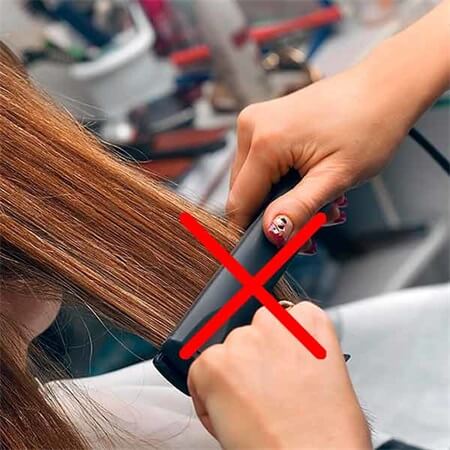
Therefore, we recommend going heat-free when it comes to drying, styling, and stretching your hair, or using a blow dryer on the cool setting. And if you’re going to blow dry your hair, please keep the dryer at least 6 inches away from your hair for best results.
More importantly, on days you do pick up that blow-dryer or iron, remember to apply some heat protectant to your hair beforehand as potholders for your strands.
Another good way to protect your natural hair from heat damage, especially if you have dry hair is to use human hair weaves or human hair wigs instead.
6. Moisturize Your Hair With Natural Oils
Especially in the colder seasons, hair oils will be your BFFs. For example, coconut oil and argan oil are especially beneficial for dry hair.
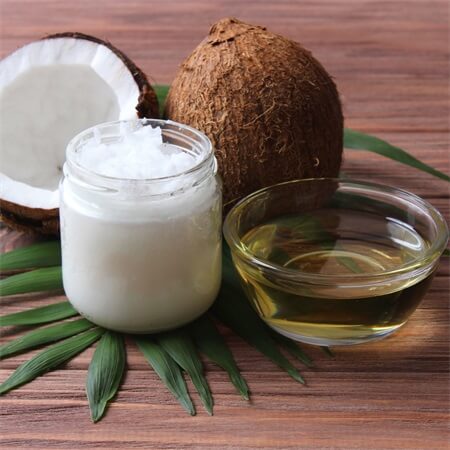
As a natural emollient, coconut oil naturally nourishes your scalp and helps to reduce oil buildup.it also helps to strengthen your scalp, moisturize and nourish dry, brittle hair. You can treat your hair to a deep-conditioning treatment of warmed coconut oil once every week.
Argan oil works similarly for dry hair. It is full of antioxidants and vitamins helping to increase your hair’s elasticity and restore moisture. It does wonders for dull hair, too.
7. Wear A hat To Avoid Sun Damage
Ultraviolet rays can damage your hair shaft the same way they can damage your skin. If you have dry hair, wear a hat or a scarf and spray your locks with UV protective spray during your daily activities to avoid prolonged sun exposure.

If your hair has already been exposed to UV rays, smoothing some pure aloe vera gel on your hair might help repair the UV damage.
8. Try LOC Or LCO Method
Wondering why your hair is so dry and brittle when it’s autumn or winter? It’s probably due to the colder, drier weather which can strip your hair moisture and make it feel dry, brittle, and dull.
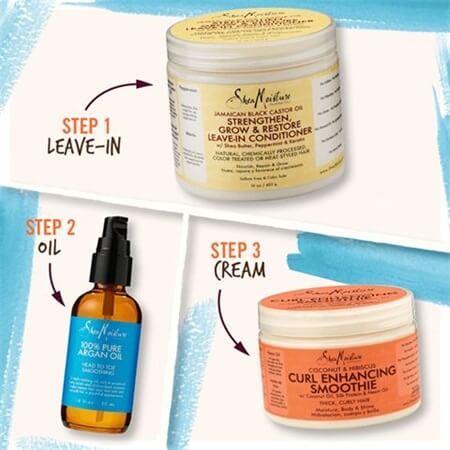
In this case, we suggest you counter weather-induced dryness by following the LOC or LCO methods. Using each of these two methods after you’ve washed your hair will help you lock in moisture and fix dry hair. For more information about LOC and LCO methods, please read this blog.
Final Thought
Keep in mind that if dry hair is left untreated, your hair will become brittle, causing it to break or fray easily. And most cases of dry hair can be effectively treated with simple home remedies.
If your dry hair persists after these home remedies, make an appointment with your doctor to ask them to help you pinpoint the cause of your dry hair and recommend treatments.
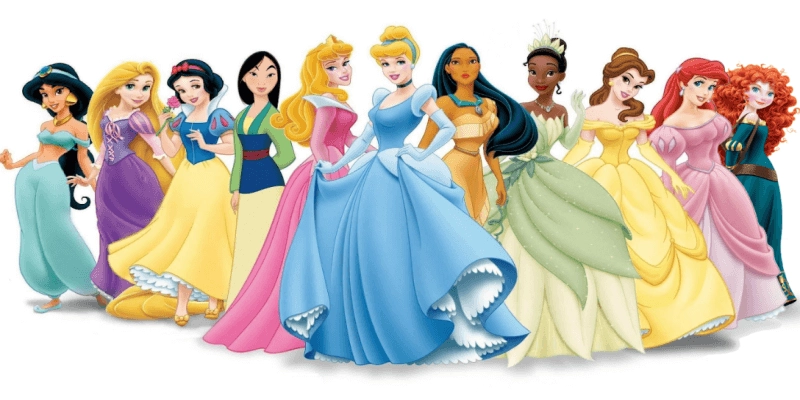 8 Disney Princesses Hairstyle Collection-You Don't Miss
8 Disney Princesses Hairstyle Collection-You Don't Miss
 Swoop Ponytail: How do You Tie a Unique Hairstyles?
Swoop Ponytail: How do You Tie a Unique Hairstyles?
 2023 Hottest Trend: Curly Bob Haircuts
2023 Hottest Trend: Curly Bob Haircuts
 U Part VS V Part Wigs, Which One Is Better?
U Part VS V Part Wigs, Which One Is Better?